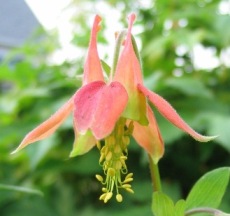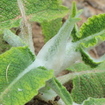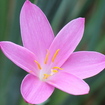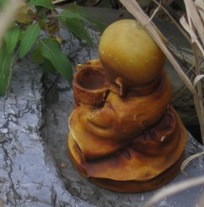Recent topics Where on earth have I landed?
When time came to move from our family's first home, we lifted our roots and planted them in the southwestern suburbs of Houston. Our tiny slice of Richmond TX is part of the brand new Harvest Green subdivision (see a pattern here?) with only institutional landscaping installed in between big homes and bermudagrass front lawns. After settling in for a few months, we started back in on gardening, developing plans for creating a new garden to enjoy around our new home – albeit at a smaller scale than our original one (lots are much smaller around here). We'll always have a soft spot for our first "lush garden", so I intend to keep the pages we built to describe that garden up here. But of course I've retooled the site to also showcase our fledgling efforts here in Houston. So if it seems like this website can't quite make up its mind what it's all about – that's why. I hope you'll take some time to explore both aspects. Please feel free to let us know what you think. Read more about gardening in the Lehigh Valley. Who's a-gardening?Mostly me (Rob), as much as I can, with Amy in a supporting role. All three of our kids are off to college now, but they occasionally mow the lawn in exchange for room and board when they revisit the homestead. Even though back in Allentown they all had their own little back-yard gardens, they haven't quite caught the gardening bug. That's OK, I didn't catch it till I had my very own garden – hopefully some of my love for plants rubs off or osmoses into their bloodstream just a little, so that they can recognize their own opportunities to develop a green thumb when they arrive. Our cat Milo is discouraged from venturing outside, yet often sneaks out when we are insufficiently vigilant. When he does, he no doubt terrorizes the bird population, and may also be engaging in some rat hunting (them rodents find our compost piles enticing). The latest additions to our gaggle are our two muttpuppies. The older one, Hippie, is a clueless husky-shepherd mix of sorts who has calmed down since her early digging days. Alas, her black companion Birdie, a smaller blend that may include some terrier and some lab, still thinks life is not worth living without digging – to the detriment of both lawn and border areas. And when the two of them roughhouse on the lawn, the grass is not a winner. We still hope that Birdie, too, will outgrow her overly energetic ways. As for wildlife – back in Pennsylvania we had resident squirrels,
chipmonks and rabbits, along with frogs and fish in the pond, an occasional
toad, and even a fox and some deer on the odd occasion. Around Houston, we
haven't found much animal life beyond insects, birds, toads, and
(delightfully) lizards. There be snakes in them thar fields, but we've only
spotted one transient visitor on our plot as of yet. On my bike rides, I
see plenty of flat armadillos (and even the occasional wild
hog), but those haven't yet conquered the privacy fences surrounding all back yards
in our neighborhood. We have had occasional visits from possums and skunks, but
those haven't stuck around. On the bird front, we've been happy to see a pair of
cardinals frequenting our garden, and hummingbird sightings are far more
frequent here than they were in Allentown. With time, we hope this garden
will support a wide and growing variety of local fauna.
What's going on?You can read about the latest musings about what's happening in the garden in my garden journal. I'd write more right here on this page, but I was always forgetting to update the information, and found some embarrassingly out-of-date statements - so I'll just try to keep my thoughts in my journal from now on. I'd call it a blog, but I'm an old-fashioned kind of guy. Latest entry: 'Magical quests' on July 21, 2025. What does it look like?
We're not sure what our Pennsylvania garden looks like right now – we left it to a new family who we hope will appreciate its many treasures, while making it their own. So I can only describe what it looked like when last we gardened there... Our almost-one-half-acre plot had plenty of garden space – the lawn area was constantly shrinking. Our smallish front yard was strewn with trees, with mixed borders along the front of the house, a rock garden, and a "Lane" leading from the front doorstep to the side garden, which at one point was our most display-worthy garden (we directed guests to our back-yard wedding through this garden when it was quite new), but it became a little sloppy over the years, working through the transitions as the huge weeping cherry cast shade where there once was abundant sun. Meanwhile, the other side of the house was flanked by a driveway with a narrow strip of perennial border, which always got parched in summer – we really valued perennials that could survive our driveway bed! The back yard was more free-form: relatively demure plantings near our patio and around the patio-side pond, a cutting garden turned 'curve garden' which became a wild playground of annuals, tall perennials, and boisterous herbs. The pièce de résistance was our big pond, which along with its waterfall and filtration bog took up a major swath of the backyard, and ran into our original back yard island with trees, shrubs, a hill, a Dutch windmill and lots of perennials with a concentration on prairie-dwellers. And then there were the vegetable garden and the orchard (which doubled as plant nursery/holding area). For a map leading to more information and photos, visit our Allentown garden page.
What plants?
I haven't tried to keep track of the number of different plants we've grown over the years, but it has to be over a couple thousand. Every year, new ones join the fold, from various seed trades and exchanges, mail-order, and local nursery purchases. For a good number of plants, I've collected some general information and added my comments, and in many cases photographs from our garden. Access these plant portraits from:
Because these pages have different purposes, the plants described don't completely overlap. Look around, and see what you can find! I even have a page dedicated to our weeds! The plant portraits below are the ones most recently added or updated
Other garden essentials
When I think of the garden, I mostly consider the plants and the hardscaping. But this business of presenting my garden to the web wide world has given me a new appreciation for some of the other things, living and inanimate, that complete our garden. First, there are the many animals scurrying, buzzing, creeping, and fluttering around. I hadn't an inkling of the sheer variety of flies that populate the premises - let alone bugs, bees, wasps, and caterpillars. To celebrate their colorful diversity, I put up a series of wildlife pages filled with pictures taken in our garden. You can also take a peek at the most recently added critter photos.
Then there are all those fungal lifeforms that rear their heads at various times of the year (but especially in fall). Some are dainty and frail, others odd, and a few just plain disgusting. But it makes for an interesting collection, which I have documented on my fungus page.
Now that we've covered the lively and the merely alive, the last (so far) category of garden essentials is garden art. One can debate whether the eclectic grab-bag of objects that constitutes our "collection" has much at all to do with art in the finer definition of the word - that's why I've titled the page showcasing it all ¿Garden art?. Seed tradingTo get through the winter, I spend a lot of time growing plants from
seed. That means I collect seed from the garden in summer and fall,
and have plenty to trade. I used to do most of my trading through
GardenWeb, but since they changed hands, I set up my own trading website, at
PlantLinks trading (currently dormant). I also
participate in the annual NARGS
seed swap.
Keeping track of the many seed varieties and trades in progress can get to be a nightmare. To help with this, I put together an Excel utility that does a lot of the hard work. If you'd like to give it a try, go to the seed tool page.
Last modified:
December 27, 2024 |
||||||||||||||||||||||||||||||||||||||||||||||||||||||
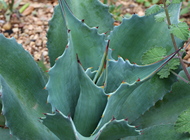
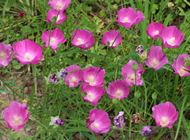


 The proper question is: What two places on earth have I landed. This website
originally described our garden on a plot in Pennsylvania's Lehigh Valley,
an hour north of Philadelphia, in the suburbs of Allentown. We
jokingly referred to our piece of zone 6 paradise as "The Lush Gardens of
Allentown", and lovingly tended it for the nearly twenty years we lived there.
Through that time, it grew from a bare patch of newly developed land into a
richly landscaped garden with many dozens of trees and other mature plantings,
two ponds, and a boatload of memories.
The proper question is: What two places on earth have I landed. This website
originally described our garden on a plot in Pennsylvania's Lehigh Valley,
an hour north of Philadelphia, in the suburbs of Allentown. We
jokingly referred to our piece of zone 6 paradise as "The Lush Gardens of
Allentown", and lovingly tended it for the nearly twenty years we lived there.
Through that time, it grew from a bare patch of newly developed land into a
richly landscaped garden with many dozens of trees and other mature plantings,
two ponds, and a boatload of memories.


 Our Houston garden is very different. Much smaller, for one, and much
younger of course. When we started shopping around for a home in the Houston area's many
'master-planned communities', we quickly realized that everything is bigger in
Texas – except for lot sizes. Many homes we considered had views of a
privacy fence six feet from the walls both left and right, and a backyard just
big enough for a patio and some shrubs. Since we knew we'd be looking for
an opportunity to build a new garden, we selected our lot accordingly: our
cul-de-sac home has a narrow front yard, but more space in the back and on the
left side than is typical in our section. That gives us some room to play with;
the
Our Houston garden is very different. Much smaller, for one, and much
younger of course. When we started shopping around for a home in the Houston area's many
'master-planned communities', we quickly realized that everything is bigger in
Texas – except for lot sizes. Many homes we considered had views of a
privacy fence six feet from the walls both left and right, and a backyard just
big enough for a patio and some shrubs. Since we knew we'd be looking for
an opportunity to build a new garden, we selected our lot accordingly: our
cul-de-sac home has a narrow front yard, but more space in the back and on the
left side than is typical in our section. That gives us some room to play with;
the 